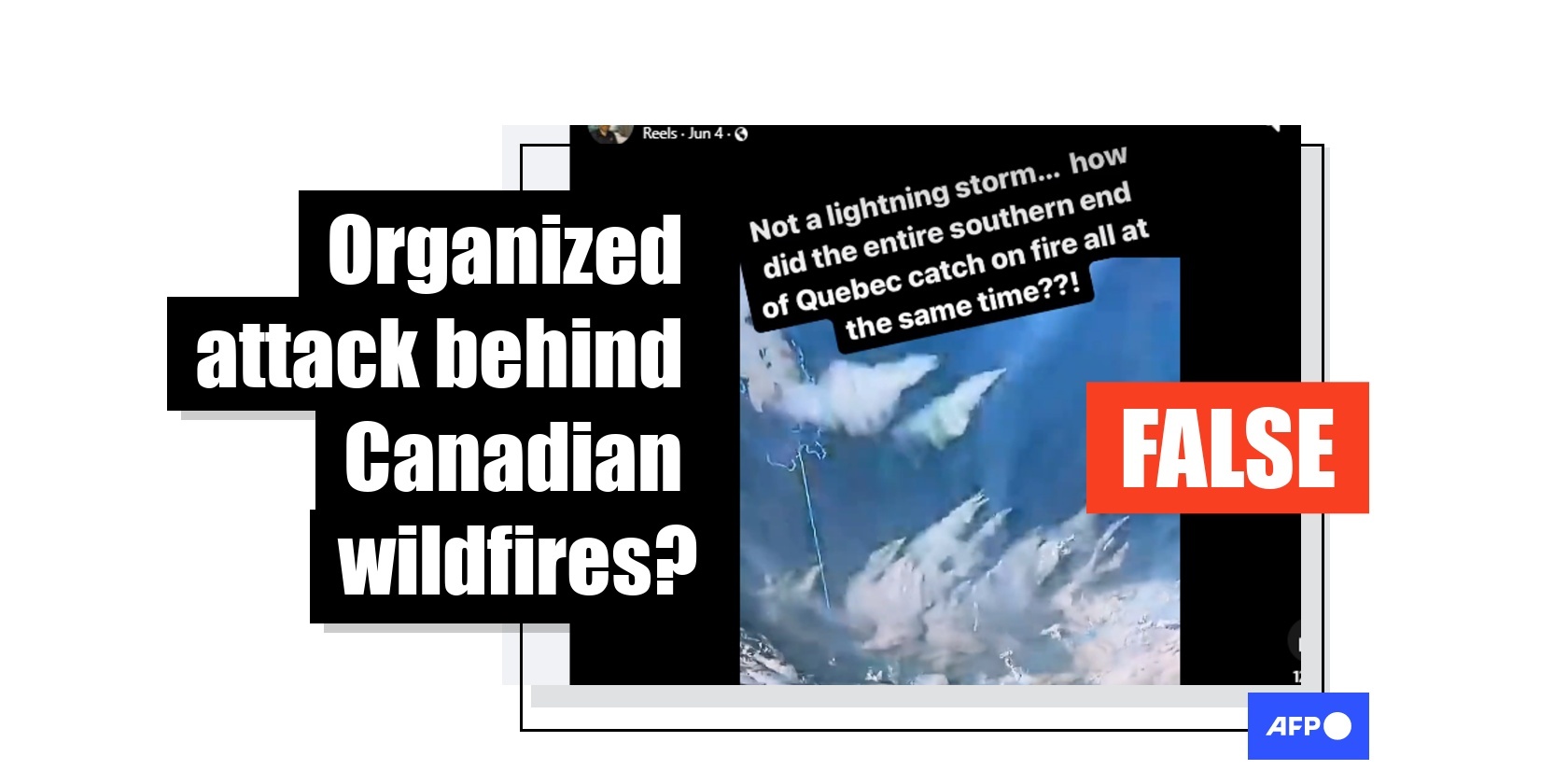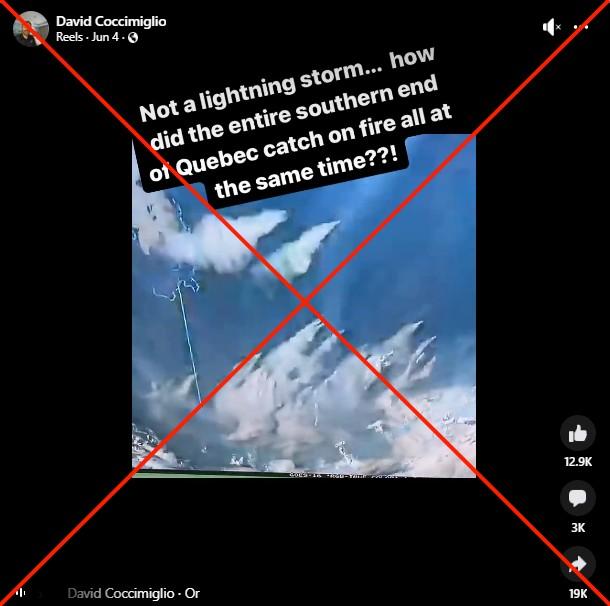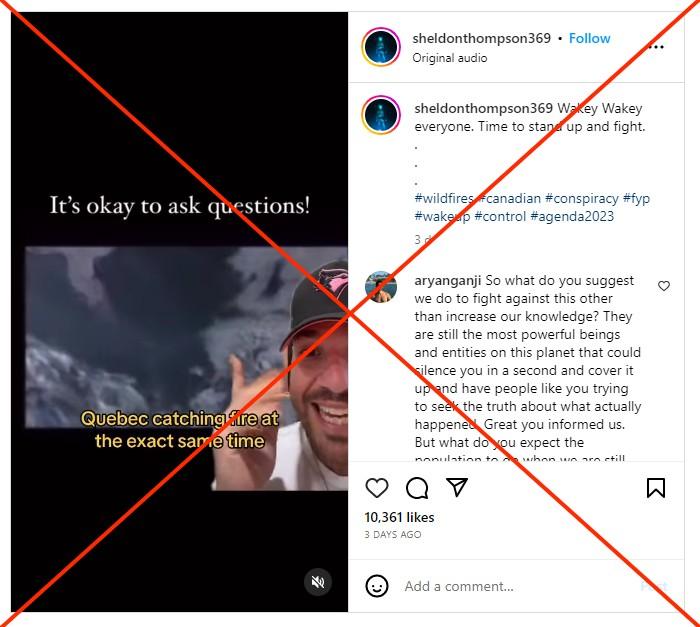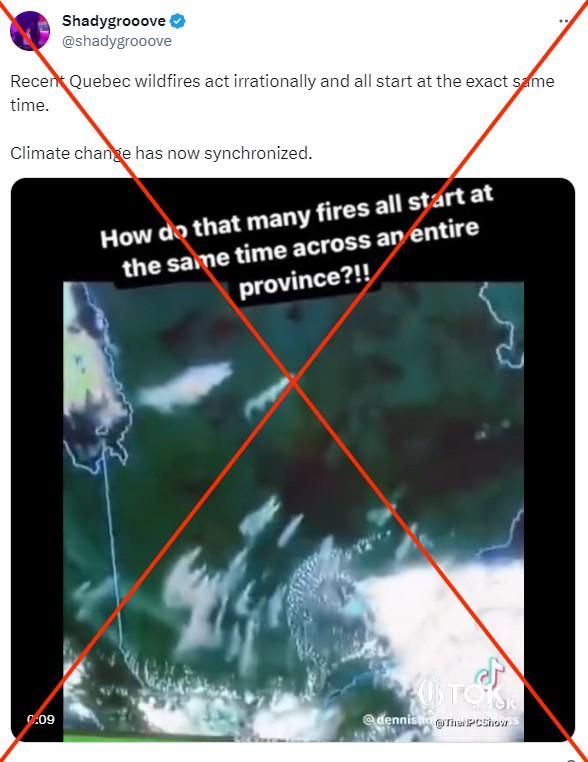
Lightning behind multiple Quebec wildfires, not coordinated arson
- This article is more than two years old.
- Published on June 13, 2023 at 22:40
- 3 min read
- By Gwen Roley, AFP Canada
"All of Quebec just caught on fire all at once on a clear day," says a voiceover in a June 4, 2023 Facebook reel with more than 1.3 million views. "I would say this would be some kind of terrorism of some kind, or an attack."
The footage appears to stem from a YouTube video published June 2. The clip, which received more than 264,000 views, claims without evidence that a "directed energy weapon" could be responsible for Quebec's blazes.

Scenes from the video and similar claims also circulated on TikTok, Twitter and Instagram.


But Karine Pelletier, a spokeswoman for Quebec's Forest Fire Protection Agency (SOPFEU in French), told AFP on June 7 that many of the wildfires in the province were caused by lightning strikes -- and that there is no evidence of a coordinated arson attack.
"There are many which are caused by humans, but these are almost always accidents," Pelletier said.
Provincial police investigate all suspicious fires, Pelletier said. While there is at least one blaze that could have been intentionally set, authorities had not revealed details as of June 13.
Philippe Bergeron, another SOPFEU spokesman, told AFP in a June 8 email that about 60 percent of the wildfires in Quebec were caused by lightning strikes from a thunderstorm that passed over the province on June 1.
Mapped data (archived here) from Colorado State University's Cooperative Institute for Research in the Atmosphere shows bolts striking the province in the hours leading up to the explosion of wildfires on June 2.
Between 2018-2022, lightning started 410 fires in Quebec, resulting in the burning of around 17,000 hectares (42,000 acres), according to SOPFEU's website (archived here)
During the same years, 1,690 residential and recreational fires burned more than 72,600 hectares (179,000 acres), while 94 arson incidents resulted in the loss of a little more than 49 hectares (122 acres).
Conspiracy theories target wildfires
Since the early start of Canada's historic wildfire season, social media users have claimed the blazes are not naturally occurring.
Alberta's fire emergency in early May coincided with a provincial election, leading some to speculate whether politically motivated arsonists started the flames. AFP previously debunked this theory.
Others shared videos of helicopters shooting fire into forests, claiming the blazes were intentional. But AFP found the clips showed controlled burns, a fire suppression technique.
Many conspiracy theories deny the role climate change plays in the increasing frequency and ferocity of wildfires, with some going as far as to say activists started the blazes to advance an environmental agenda.
Natural Resources Canada (NRC) said in a June 5 press release (archived here) that climate change is making wildfire season worse in Canada. This year is particularly destructive due to hot, dry and windy conditions.
As of June 13, NRC had reported more than five million hectares (12 million acres) burned in Canada so far in 2023 (archived here).
Read more of AFP's reporting on misinformation in Canada here.
Copyright © AFP 2017-2026. Any commercial use of this content requires a subscription. Click here to find out more.
Is there content that you would like AFP to fact-check? Get in touch.
Contact us
